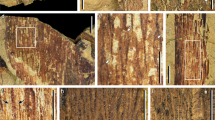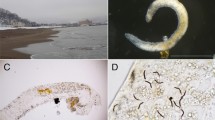Abstract
IN a previous communication my associate and I1 recorded for the first time successful artificial production of ergot sclerotia of high alkaloid content (total alkaloid content 0.32 per cent, ergometrine content 0.07 per cent) in the tropical plains of Bengal. Ergot, it may be stated here, has long been known to grow naturally at high altitudes and under temperate conditions of such countries as Spain, Portugal, Baltic States, etc. Reports of the artificial production of ergot sclerotia in situations akin to their natural habitats are known from Australia2 and at Nilgiri Hills, Madras (India)3.
This is a preview of subscription content, access via your institution
Access options
Subscribe to this journal
Receive 51 print issues and online access
$199.00 per year
only $3.90 per issue
Buy this article
- Purchase on Springer Link
- Instant access to full article PDF
Prices may be subject to local taxes which are calculated during checkout
Similar content being viewed by others
References
Saha, J. C., and Bhattacharjee, S. K., Nature, 156, 363 (1945).
Hynes, J. J., Agric. Gaz. N.S.W., Misc. Pub. No. 3218 (1941).
Thomas, K. M., and Ramkrishnan, F. S., Madras Agric. J., 30, No. 12 (1942).
Author information
Authors and Affiliations
Rights and permissions
About this article
Cite this article
SAHA, J. Sphacelial Stage in the Life-history of Claviceps purpurea (Fr.) Tul. Nature 158, 881–882 (1946). https://doi.org/10.1038/158881a0
Issue Date:
DOI: https://doi.org/10.1038/158881a0
Comments
By submitting a comment you agree to abide by our Terms and Community Guidelines. If you find something abusive or that does not comply with our terms or guidelines please flag it as inappropriate.



